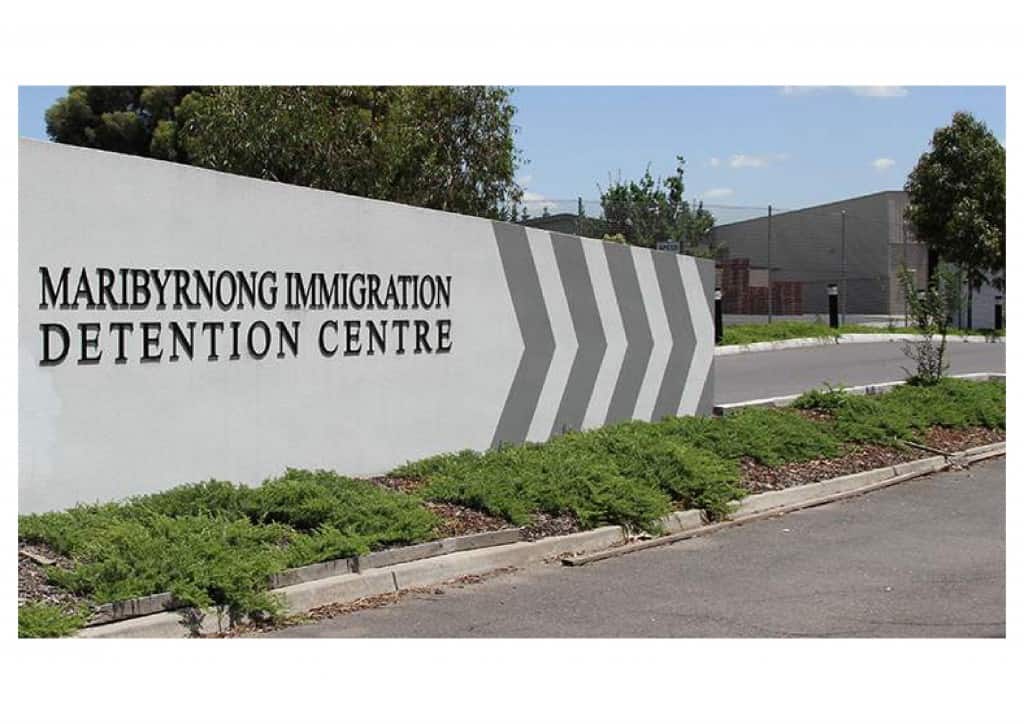
The Department of Immigration is given a mandatory power to have your visa cancelled on character grounds regardless of whether it is a temporary or permanent visa.
Section 501(3A) of the Migration Act 1958 provides the Minister with the power to have your visa cancelled on character grounds if you had a substantial criminal record and you are serving a full-time sentence of imprisonment. Once you have served your imprisonment, you will be detained in an immigration detention centre pending your removal from Australia.
Section 501CA allows you to make representations seeking revocation of the Minister’s decision to have your visa cancelled on character grounds. However, the Minister can decide not to revoke the cancellation decision (s501CA(4)). Click here to learn more about Ministerial Direction No. 79.

Australia Migration Act
What is substantial criminal record?
The mandatory cancellation power under section 501(3A) is engaged when the Minister is satisfied that you do not pass the character test because you have a substantial criminal record and you are serving a sentence of imprisonment on a full-time basis for an offence against a law in Australia.
Character test is defined in section 501(6) as having a substantial criminal record.
Section 501(7) defined having a substantial record if you have been :
- sentenced to death; or
- sentenced to imprisonment for life; or
- sentenced to a term of imprisonment of 12 months or more; or
- sentenced to 2 or more terms of imprisonment where the total is 12 months or more; or
- acquitted of an offence on the grounds of unsoundness of mind or insanity and you have been committed to a facility or institution; or
- have been found by a court to not be fit to plead, in relation to an offence; and the court has nonetheless found that on evidence available you have committed the office; and you have been detained in a facility or institution.
To learn more about section 501 visa refusal and cancellation of visa on character grounds, click here.
What is mandatory cancellation or section 501(3A) visa cancellation?
Once section 501(3A) is engaged, the Minister will proceed to have your visa cancelled on character grounds. After your visa is cancelled, the Minister will provide you with a written notice describing the decision to have your visa cancelled on character grounds. The written notice will set out particulars of the relevant information the Minister took in cancelling your visa and will invite you to make representations within a time period and in a particular manner (s 501CA(3)). It is likely you will be provided with forms entitled “Request for Revocation of a Mandatory Visa Cancellation under s501(3A)” and “Personal Details Form”.
If your visa has been cancelled for failing the Character test, your should provide character statements from people, including your work colleagues, who are aware of your previous offending. In their statement, they must state that they are aware of your offending and whether or not you will offend again (and provide the reasons for having this belief). The decision-maker is required to assess if you are allowed to remain in Australia whether you posed a risk of reoffending. If you provide character statements, the decision-maker must take proper account of the character evidence as relevant to the risk of future offending. It is a necessary part of the decision-maker’s assessment as to the risk of criminal conduct in the future for the purposes of s 501(6)(d), must assess the character and circumstances both at the time of the offending and at the time of assessment. These character statements should say, for eg, you are of good character and did not pose a risk of reoffending using words such as “…. had grown and matured since the period of offending”. They are relevant and material to the assessment of your risk of reoffending. The decision-maker cannot conclude that you will reoffend simply because of your past offending unless your character remained unchanged from the time of your offending (Anees v MIBP [2020] FCFAC 28). The decision-maker must consider the character statements that you had grown and matured such that you would not behave in the same way in any future circumstances.
Character witnesses are relevant in deciding whether there is a risk that you would engage in further criminal conduct if you are permitted to remain in Australia as they provide important insights to your enduring character and whether you are the same person you had been at the time of your offending or had changed for the better.
What is section 501CA revocation of cancellation request?
You should consult an immigration lawyer before you exercise your right under section 501CA(4)(a) requesting the Minister to revoke the cancellation.
When the Minister received your request to revoke the cancellation, he must be satisfied that you pass the character test (s 501CA(4)(b)(i)) or there is another reason why the cancellation should be revoked (s 501CA(4)(b)(ii)).

Detained in detention centre after serving imprisonment
If the Minister decided to revoke your visa cancellation, then the cancellation is taken not have been made (s 501CA(5)) and your detention in an immigration detention centre is taken to be lawful, that is, you are not entitled to sue the government because you spent time in the immigration detention centre (s 501CA(6)).
You should be aware that if the Minister decided not to consider your section 501CA(4) request to revoke your visa cancellation, you will not be able to apply to the AAT for a merits review (s 501CA(7)). However, if the Minister reviewed your revocation request but decided not to revoke the cancellation then you can apply to the AAT. If you applied to the AAT, you must attend the scheduled hearing, or the AAT will dismiss your application under s 42A(2) of the AAT Act 1975. If you did not attend and the AAT dismissed your application, you can apply to the AAT to reinstate your application (s 42A(9) of the AAT Act). However, the AAT can decide not to reinstate your application because, for example, the time limit in s500(6L) had expired (that is, you applied more than 84 days after being notified of the refusal to revoke cancellation decision, AAT is taken to have affirmed the decision under review) in which case you will need to apply to the Federal Court.
Documents to provide to support revocation of cancellation decision
- Letters in support of revocation request. Members of your family, friends, colleagues, employer, members of your place of worship, etc can provide letters of support;
- Evidence of whether you have family back in your home country;
- Evidence of the kind of support or support network you may or may not have back in your home country;
- Evidence of how often you returned to your home country;
- Evidence of employment skills and whether you are able to work in the same occupation in your home country;
- Evidence of whether there are members of your family in Australia needing your care and support:
- Evidence of having a family in Australia;
- Evidence of how your deportation from Australia will affect members of your family;
- Evidence of the degree of hardship you will suffer if you are returned to your home country;
- Evidence of the kind (for eg, financial, emotional, etc) and degree of hardship members of your family and anyone else will suffer if you are returned to your home country;
- Evidence of the length you have been living in Australia;
- Evidence of your contributions to the Australian society, community and others;
- Statement explaining your understanding of your home country, for eg, the language, culture, health system, and others;
- Statement explaining your offending, the circumstances leading to your offending and whether you were influenced by, for eg, drug or alcohol, for your offending. You should also explain, if applicable, the length of time between each offending and whether and how you are remorseful;
- If you have a positive sentencing remarks from the magistrate, provide the transcript or audio recording;
- Evidence of having undergone and completed rehabilitation programs, for eg, anger management, mood management, parental guidance, relapse prevention, conflict management, drug and alcohol treatment, depression programs to address, reform and correct your behaviour;
- Letter from psychologist or treating psychiatrist, substance abuse therapist detailing why it is improbably that you will re-offend in the future and why you do not represent an unacceptable risk of harm to the Australian community; and whether or why you are a recidivist (habitual relapse into crime) offender. Also, whether and how you have taken personal responsibility for your criminal conduct and behaviour.
- Letter from psychologist and/or social worker detailing how your deportation will affect each member of your family;
- Letters from your children school principals or teachers or psychologists detailing how your children will be affected if you are deported;
- You can also submit the magistrate’s sentencing remarks if you are not or do not posed a risk to the Australian community;
- Police summaries of your offending conduct, what evidence were put to the court which convicted you, report about your time in the correctional system/facility and about your behaviour or rehabilitation, and parole records.
What can’t the Minister use to cancel your visa?
You should be aware that there is no onus on you to establish that you are not a risk or posed an unacceptable risk to the Australian community.
You should also be aware that your offending as listed in your AFP National Police Certificate (NPC) by itself does not represent that your offending formed a pattern of behaviour, or the offending constituted similar acts of violence involving the same or similar victims, or they revealed a trend of increasing or decreasing degrees of violence, or your offending is a result of, or affected by, the taking of drugs, or whether there are mitigating circumstances, or you don’t care about Australia law. In short, your AFP NPC is a recital of your criminal offending history (eg, identification of the offences, the court date, and the sentencing disposition or outcome) and it does not predict your future behaviour, that is, you will or will not re-offend in a way that creates a risk of harm to the Australian community (Assistant Minister for Immigration and Border Protection v Splendido (“Splendido”) [2019] FCAFC 132 per Mortimer J at para 71). Hence, the AFP NPC is no more probative of you re-offending than it is for you not to re-offend.
If the Minister cancelled your visa because he believe you will reoffend and/or you posed a risk to the Australian community, the Minister must have probative basis to make this assertion that there is an existence of such risk (Splendido). In short, the Minister must make enquires or produce evidence (eg, sentencing remarks, police statement, etc) which show your likelihood of re-offending and of resultant harm to the community. If the Minister is unable or did not provide evidence, then the Minister has engaged in nothing more than guesswork or speculation about your future conduct (Splendido per Mortimer J at para 52; see also Hughes v The Queen [2017] HCA 20; 344 ALR 187 at [70]-[72] – “tendency reasoning”). The Minister is required to engage in a qualitative assessment of the strength or seriousness of any risk you would engage in further offending. The Minister is required to have some information (such as the nature or the type of criminal offence committed and circumstances of your offending) or material which give him some basis of making a qualitative assessment that you will re-offend and/or you are a risk to the community (Splendido at para 82).
If you have many convictions over a long period of time, this does not necessarily mean you have a greater risk of re-offending compared to a person with a single conviction. Whether you will re-offend will depend on an assessment of the factual circumstances and an assessment of whether you are genuinely rehabilitated and no longer exposed to the circumstantial factors which caused your offending.
You should note that in Applicant S270/2019 v MIBP [2020] HCA 32, the HCA said that if your visa that was cancelled is not a protection visa, non-refoulement obligations need not be considered under s 501CA(4) unless you specifically make non-foulement claim as non-refoulement claim will be considered if you applied for a protection visa.
If your visa is not cancelled under section 501(3A) but at the airport, click here to learn what visa you may be eligible to apply. To learn more about visa cancelled under s 501(2), click here.
If you are detained in an immigration detention centre you may be able to apply for a Bridging Visa E so that you may be released back to the community. However, the Department of Immigration may refuse to grant you a Bridging Visa E if you have criminal record. You can apply to the AAT within 2 days of receiving the refusal decision (click here to learn more).
You should note that if your visa application has been refused or your visa cancelled while you are in Australia, you may be prevented from lodging another visa application (click here to learn more about section 48 bar and visa application limitations).
Australian migration law is complex and difficult to understand, contact our migration lawyer for a consultation (fee applies) if the Department of Immigration ordered your visa cancelled on character grounds or click here to find your answers in our FAQ

 041 222 4020 or WeChat: AUDvisa
041 222 4020 or WeChat: AUDvisa
This article is not intended to be or taken as migration legal advice. The author of this article disclaims any liability for any action or omission on the information provided or not provided in this article. You should always consult an immigration lawyer or a registered migration agent to form an informed opinion on your immigration matter



